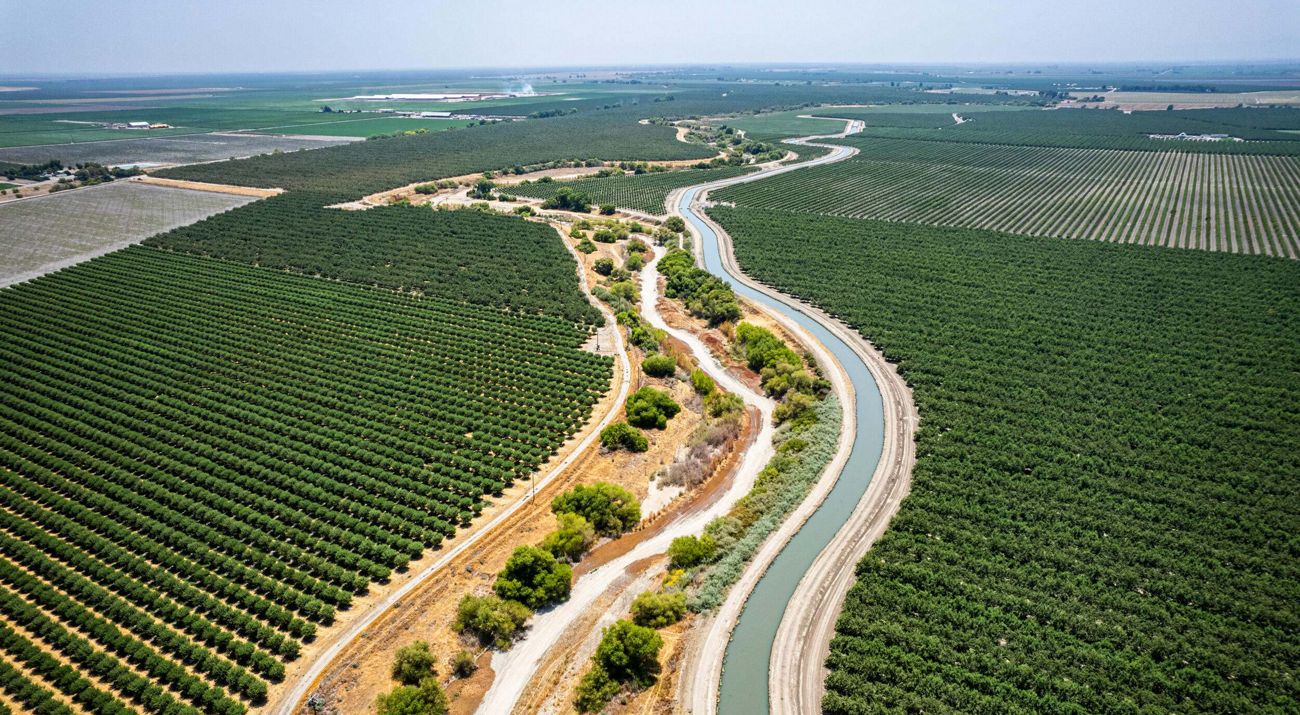Growing Threats: How Climate Change Will Exacerbate Agriculture’s Environmental Impacts
With extreme weather threatening food production globally, scientific review connects key risks and proposes solutions.

Media Contacts
-
Tom Jennings (U.K.)
Email: tom.jennings@tnc.org -
Claire Griffin (U.S.)
Email: claire.griffin@tnc.org
As the world grapples with the challenge of feeding a growing population against an increasingly unstable backdrop, leading journal Science today published what’s believed to be the most comprehensive scientific review ever undertaken into how climate change is likely to exacerbate the significant environmental impacts that agriculture already makes on our planet.
Led by scientists from China’s Chongqing University alongside numerous international institutions including The Nature Conservancy (TNC), the study catalogues the extent to which the long-term health of people and nature depends on the resilience and sustainability of food production systems in light of ongoing climate change.
“The paper highlights where agriculture’s negative environmental impacts could be further magnified as the climate crisis deepens, exacerbating greenhouse gas emissions, nutrient pollution, and habitat and soil loss,” said lead author Yi Yang, professor at Chongqing University
Based on a comprehensive review of pre-existing science, the study predicts that climate change is likely to compound agriculture’s existing impacts by shrinking harvests, reducing the effectiveness of synthetic inputs like fertilizers, and accelerating the damage caused by crop pests and soil erosion.
Declining yields and fertility loss could lead in turn to increased clearing of land for food production, causing the loss of wildlife habitat and biodiversity, while also necessitating increased application of fertilizer and pesticides to maintain productivity, with knock-on effects for surrounding ecosystems.
Perhaps most worrying are the feedback loops highlighted by this study that threaten to exacerbate agriculture’s environmental impacts, even as the sector pivots to respond to climate-driven demands: from rice paddies emitting increasing levels of the powerful greenhouse gas methane (CH4) and degraded soils releasing higher levels of nitrous oxide (N2O), to land clearance and soil tillage accelerating land-based carbon emissions.
Other vicious circles could be created as intensification of farming practices demands increased irrigation and the application of additional agrichemicals—both energy-intensive practices—while the run-off of these substances into freshwater systems could also boost biogenic emissions of additional greenhouse gases.
Co-author Joe Fargione—TNC’s science director for North America—said: “There is already ample reason to fight climate change, but this paper highlights an additional reason—that it makes it harder to achieve sustainable agriculture. To feed a growing world, we need to continue to increase agricultural yields, rather than cutting down remaining rainforests and plowing up remaining prairie to expand agriculture. But that means conserving soils, weathering droughts, and controlling pests—all of which will be harder in a warmer world with bigger storms, deeper droughts, and longer growing seasons for pests.
But there is hope. “Fortunately, many of the practices that make agriculture more sustainable and resilient can also help slow climate change,” said David Tilman, Regents Professor and McKnight Presidential Chair in Ecology at the University of Minnesota. Approaches that promote soil health, such as cover crops, no-till, and crop diversification, can also increase the ability of agricultural soils to store carbon. Agroforestry can diversify farmer revenue, provide shade for livestock, and serve as windbreaks while also sequestering further carbon. More efficient fertilizer use reduces water pollution as well as emissions of nitrous oxide—a greenhouse gas 300 times as powerful as CO2.
“Strategies along the food system value chain can also be greatly helpful, like reducing food waste and the overconsumption of meat, especially in high-income countries. These strategies can reduce the overall land base of the global food system, thus lowering climate risks and the feedback effects identified in the study,” added Yi Yang.
But the longer we wait to mainstream these strategies—alongside reducing emissions from energy, transportation, construction and other economic sectors—the harder it will be to make agriculture sustainable.
To learn more about how The Nature Conservancy’s scientists are informing solutions to some of the world’s biggest challenges, visit: nature.org/science.
Yang Y., Tilman D., Jin Z., Smith P., Barrett C.B., Zhu Y.-G., Burney J., D’Odorico P., Fantke P., Fargione J., Finlay J.C., Rulli M.C., Sloat L., van Groenigen K.J., West P.C., Ziska L., Michalak A.M., Lobell D.B. Climate change exacerbates the environmental impacts of agriculture. Science. https://doi.org/10.1126/science.adn3747
The Nature Conservancy is a global conservation organization dedicated to conserving the lands and waters on which all life depends. Guided by science, we create innovative, on-the-ground solutions to our world’s toughest challenges so that nature and people can thrive together. We are tackling climate change, conserving lands, waters and oceans at an unprecedented scale, providing food and water sustainably and helping make cities more resilient. The Nature Conservancy is working to make a lasting difference around the world in 83 countries and territories (39 by direct conservation impact and 44 through partners) through a collaborative approach that engages local communities, governments, the private sector, and other partners. To learn more, visit nature.org or follow @nature_press on X.